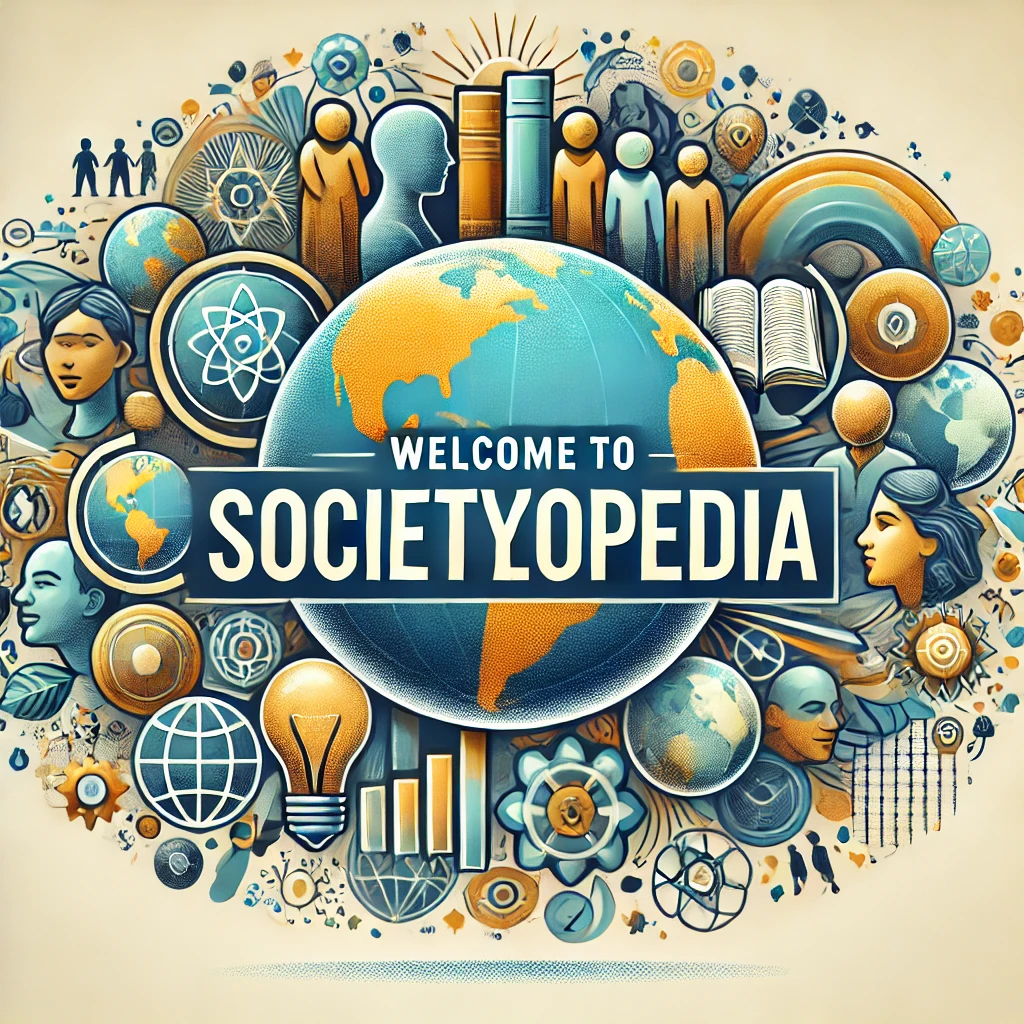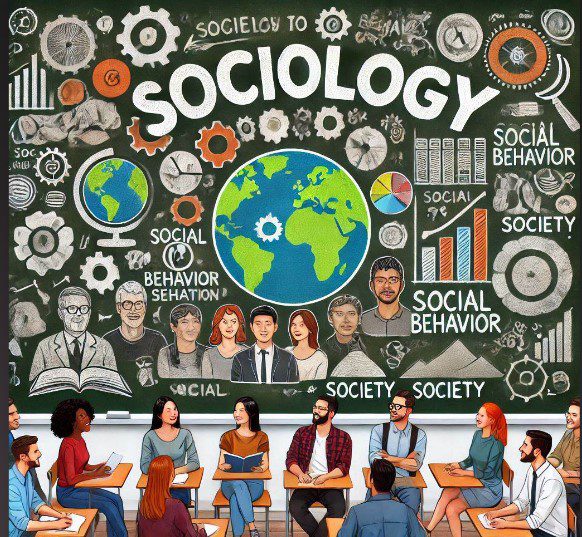Sociological Perspective
Sociological Perspective the special point of view of sociology that sees general patterns of society in the lives of particular people
The sociological perspective involves looking at human behavior and social phenomena through the lens of societal structures, patterns, and relationships. It emphasizes how individual experiences are shaped by larger social forces such as culture, institutions, history, and power dynamics.
Examples of Sociological Perspective
1. Education and Inequality
Sociological Insight: The sociological perspective reveals how education is not just a personal achievement but is influenced by socioeconomic status, cultural capital, and institutional policies.
Example:
- In Pakistan, a child attending a private English-medium school (like Beaconhouse) is likely to receive a higher-quality education than one attending a government school in a rural area.
- Sociological Perspective: This disparity reflects structural inequalities, where wealthier families have access to better resources, perpetuating class divisions.
2. Gender Roles in Society
Sociological Insight: Gender roles are not innate but are socially constructed through cultural norms, media, and institutions.
Example:
- In many societies, including Pakistan, women are often expected to prioritize caregiving and household responsibilities over career aspirations.
- Sociological Perspective: This expectation is a product of patriarchal norms reinforced by family traditions, religious interpretations, and economic structures, not a natural division of labor.
3. Crime and Deviance
Sociological Insight: Crime is not merely a result of individual choices but is shaped by societal factors like poverty, marginalization, and cultural norms.
Example:
- Urban centers like Karachi often experience higher crime rates compared to smaller towns.
- Sociological Perspective: These patterns can be explained by factors like income inequality, unemployment, and lack of access to education, rather than simply labeling individuals as “criminals.”
4. Family Structures and Modernization
Sociological Insight: Family dynamics are influenced by cultural and economic changes rather than just individual preferences.
Example:
- In Pakistan, joint family systems are gradually being replaced by nuclear families, especially in urban areas like Lahore and Islamabad.
- Sociological Perspective: This shift is linked to modernization, urbanization, and the pressures of a growing middle class, which requires mobility and smaller living arrangements.
5. Social Media and Identity
Sociological Insight: Social media platforms shape how individuals construct and present their identities, influenced by societal expectations and technological trends.
Example:
- Teenagers in Pakistan often curate their Instagram profiles to reflect an idealized version of themselves, influenced by global trends and peer validation.
- Sociological Perspective: This behavior demonstrates how identity is a social construct, shaped by cultural norms, technological advancements, and consumer culture.
6. Health and Illness
Sociological Insight: Health outcomes are shaped by social determinants like income, education, and access to healthcare.
Example:
- Maternal mortality rates in rural areas of Pakistan are significantly higher than in urban areas.
- Sociological Perspective: This discrepancy can be attributed to structural factors such as lack of healthcare infrastructure, gender inequality, and cultural taboos surrounding women’s health.
7. Globalization and Cultural Change
Sociological Insight: Globalization influences local cultures, creating both opportunities and tensions.
Example:
- In Pakistan, traditional clothing like shalwar kameez coexists with Western-style fashion in urban areas.
- Sociological Perspective: This blending of cultures reflects the impact of global media, multinational corporations, and changing consumer preferences.
8. Workplace Dynamics and Class
Sociological Insight: Workplace behavior and hierarchies are influenced by broader class structures and cultural expectations.
Example:
- In many Pakistani offices, employees from higher socioeconomic backgrounds may have more opportunities for promotions, while those from lower-income families often face systemic barriers.
- Sociological Perspective: This disparity reflects the intersection of economic inequality and workplace power dynamics.
9. Religion and Social Integration
Sociological Insight: Religion functions as a force for both social cohesion and division, depending on the context.
Example:
- In Pakistan, religious festivals like Eid foster community and solidarity, but sectarian tensions (e.g., between Sunni and Shia Muslims) also highlight divisions.
- Sociological Perspective: These dynamics illustrate how religion shapes identity and social bonds but can also be a source of conflict.
10. Consumer Culture
Sociological Insight: Consumer behavior is shaped by social expectations, advertising, and cultural norms, rather than just individual choice.
Example:
- In Pakistan, owning a new car or the latest smartphone is often seen as a status symbol, reflecting one’s social class.
- Sociological Perspective: This behavior is influenced by societal pressures to display wealth and success, which are reinforced by media and advertising.
11. Migration and Urbanization
Sociological Insight: Migration patterns are shaped by structural factors like economic opportunity, political stability, and family networks.
Example:
- Rural-to-urban migration in Pakistan has led to overcrowding in cities like Karachi and Lahore, as people seek better jobs and education.
- Sociological Perspective: This trend reflects the push-pull dynamics of migration, where rural poverty “pushes” individuals out, and urban opportunities “pull” them in, creating challenges like slum development and resource scarcity.
12. Education and Social Mobility
Sociological Insight: Education is often seen as a path to upward mobility, but sociologists reveal how structural barriers limit its potential.
Example:
- A student from a wealthy family attending a prestigious school like LUMS in Pakistan is more likely to secure lucrative job opportunities compared to someone attending a local government college.
- Sociological Perspective: This disparity highlights how social class influences educational outcomes and opportunities for mobility.
13. Deviance and Social Control
Sociological Insight: Actions defined as deviant are not inherently “bad” but are labeled as such by society based on its norms and values.
Example:
- In Pakistan, behaviors like women riding motorcycles in conservative areas may be viewed as deviant.
- Sociological Perspective: This reflects societal expectations about gender roles rather than any inherent wrongness in the behavior.
Conclusion
The sociological perspective provides a powerful lens to analyze and understand the complexities of human behavior and societal structures. By examining how individuals’ lives are shaped by broader social forces, it encourages critical thinking and empathy, helping societies address inequalities and foster social progress. Whether analyzing education, health, migration, or identity, the sociological perspective offers invaluable insights into the interconnectedness of personal experiences and societal dynamics.
Stay tuned with Societyopedia to explore more about our social world.


